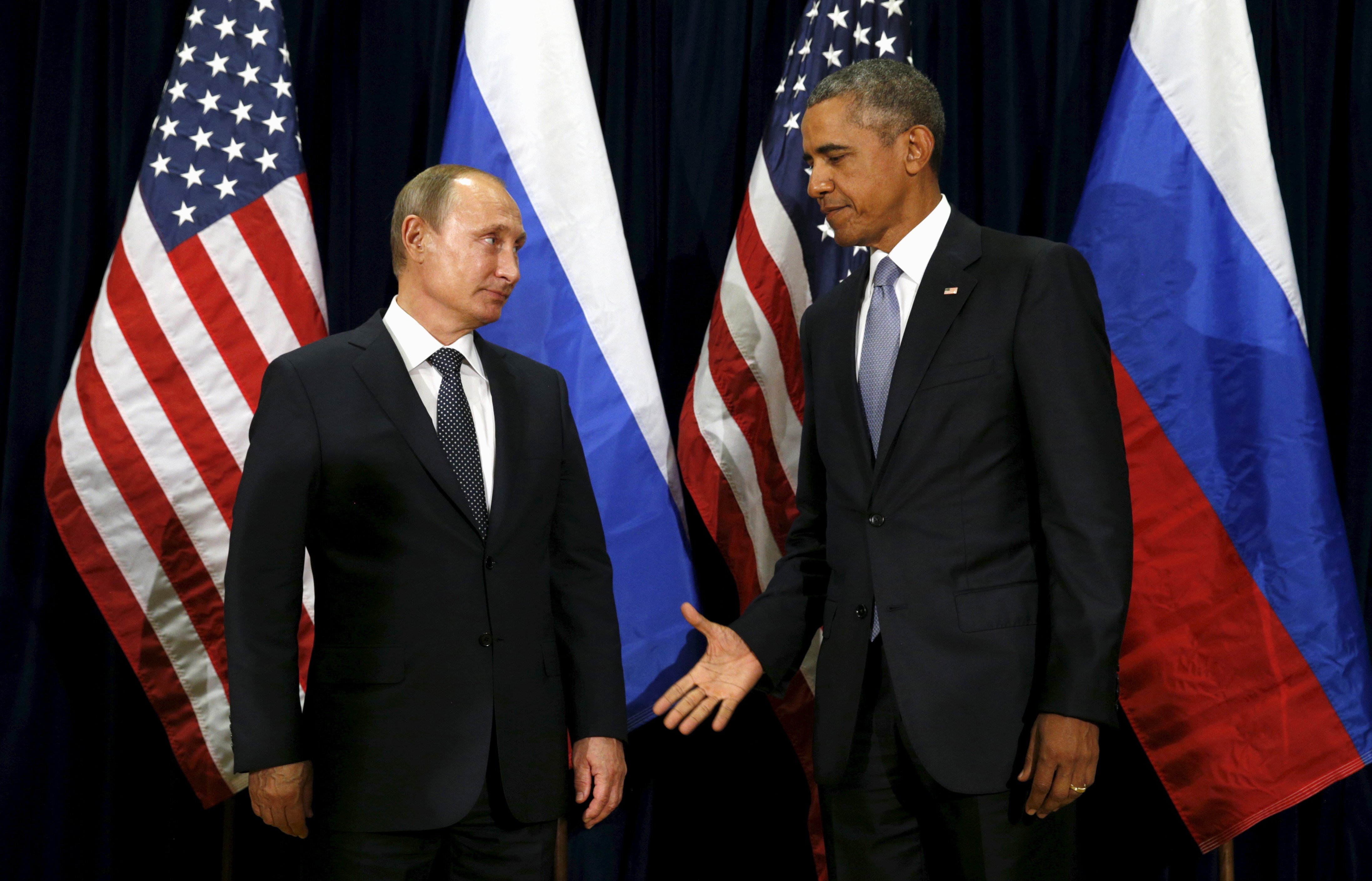
One day after launching a campaign of airstrikes in Syria, Russia announced that it was considering going into Iraq.
A foreign ministry representative said Thursday that Russia would consider any request from Iraq to conduct anti-ISIS airstrikes in the country, and Iraqi President Haider al-Abadi told Western news outlets that Russian airstrikes were "a possibility" and that Iraq would "welcome it."
"Our message to the Russians — I met with Putin — please join this fight against Daesh," Abadi told PBS NewsHour, referring to Russian President Vladimir Putin. Daesh, as well as the Islamic State, is another name for the ISIS militant group.
"Daesh is a dangerous terrorist organization, not only against Iraq, against Syria, against the whole region, against the whole world. It is time that we all join the same forces to fight Daesh."
This escalation signifies a "fundamental shifting of the balance of power in the Middle East," Ali Khedery, the longest continuously serving American official in Iraq, told Business Insider in an interview.
Khedery called the Russian strikes a "major world event" and compared the country’s actions to the formation of the Axis alliance leading up to World War II.
"Now, an alliance really is consolidating and formalizing," Khedery said. "There is now a Shia axis locked in combat across Iraq, Syria, and Yemen. I expect an expansion of the conflict in the months and years ahead. This has the potential to escalate into a regional war, a holy war, and global cold war."
The alliance Khedery speaks of is between Iran, Syria, Iraq, and the Tehran-backed Shia militant group Hezbollah. The group has already set up a coordination cell in Baghdad.
‘A strategic enemy of the United States’
Russia started bombing targets in Syria on Wednesday, avoiding the strongholds of ISIS and instead going after areas held by other rebels who are fighting the regime of Syrian President Bashar Assad, who the US has said must step aside if ISIS is to be defeated.
 Institute for the Study of War
Institute for the Study of War
Initially, Russia insisted that it was entering Syria to wipe out ISIS, but experts say it’s now clear that Russia’s prime concern is propping up the Assad regime against nationalist rebels and maintaining its influence in the region.
Thursday’s statements from Russia and Iraq come days after Iraq announced an intelligence-sharing agreement with Russia, Syria, and Iran.
 Institute for the Study of War
Institute for the Study of War
"Russia seeks to lay the foundation for a long-term strategic presence in the Middle East," Khedery said. "I think it’s catastrophic … To me, this is the latest and greatest sign that Iraq is actually, as a government, a strategic enemy of the United States. It is allied with our strategic enemies — Iran, Assad, Hezbollah, and now, Russia."
The news of possible Russian airstrikes in Syria comes as Iranian troops arrive in Syria to join Assad’s forces and Hezbollah fighters for a ground offensive, Reuters reports. Sources told Reuters that the operation "would be aimed at recapturing territory lost by Assad’s government to rebels."
It’s unclear what the US will do moving forward. Secretary of State John Kerry said Wednesday that the US had "grave concerns" about Russian strikes in Syria. And a US military official acknowledged that the strikes did "not correlate" with known ISIS positions, according to The Wall Street Journal.
Khedery predicts that Russia’s escalation in the Middle East will continue as Putin seeks to project Russian power and fill "a vacuum left by US President Barack Obama in the wake of his perceived inability or unwillingness to defend American and allied interests in the region," he said.



